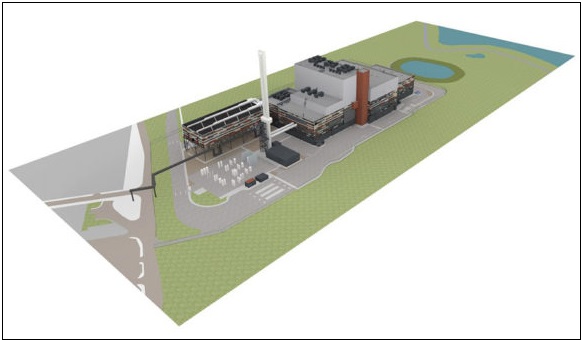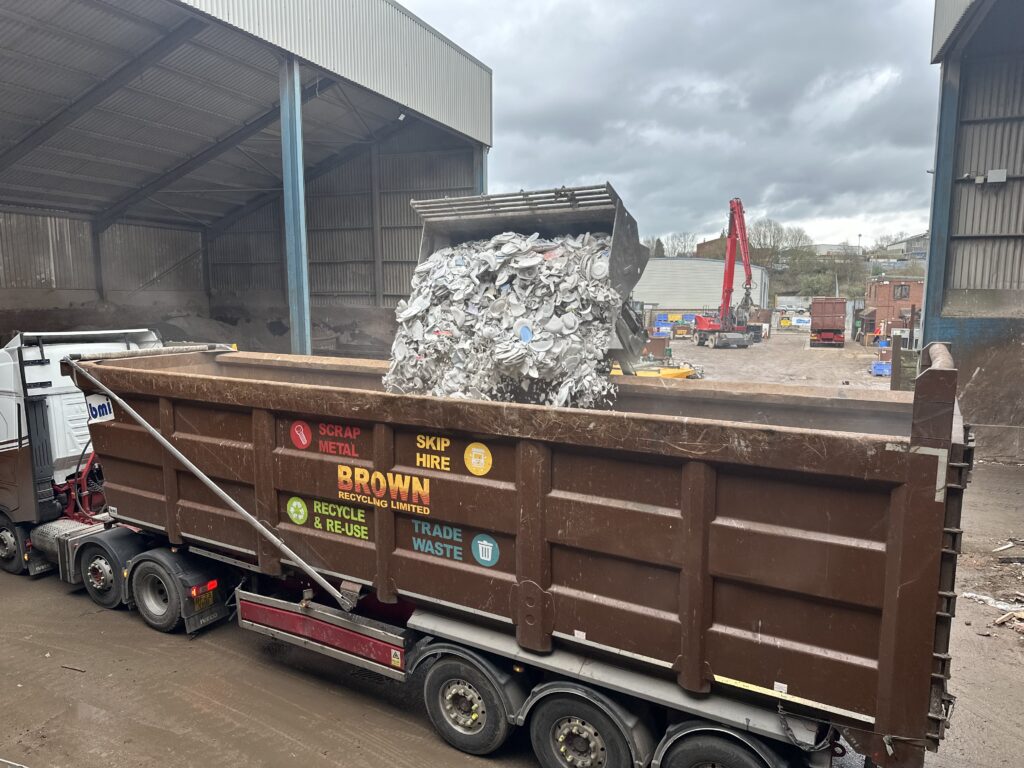The ruling was handed down on Friday (8 October) in the High Court of Justice, Queen’s Bench Division, after a hearing in July.
The EfW plant was rejected by the secretary of state Kwasi Kwarteng in February 2021, on the basis at the new plant could impact recycling rates and he also criticised it for “not being energy efficient” (see letsrecycle.com story).
Wheelabrator — which was acquired by First Sentier Investors last year and rebranded to enfinium —was however granted permission for to increase the capacity of its Wheelabrator Kemsley plant (K3) by a further 107,000 tonnes per year to a maximum of 657,000 tonnes.
Mr Justice Dove said despite an “error of law” from Mr Kwarteng, “I do not consider that the claimant is entitled to relief on the basis that the decision would have been the same, and certainly unlikely to have been substantially different, even if the error of law had not been committed”.
We remain committed to our mission to develop modern, sustainable waste treatment infrastructure
– enfinium spokesperson
‘Flawed’
A spokesperson for Wheelabrator (now enfinium) said: “enfinium are disappointed by the High Court’s judgment that, although the decision not to approve the Kemsley North Development Consent Order was legally flawed, it should not be re-determined.
“We remain committed to our mission to develop modern, sustainable waste treatment infrastructure to avoid the need to send residual waste, that cannot be reused or recycled, to landfill or to be exported overseas. By doing this, we can deliver better outcomes for our environment and help the U.K. achieve its climate change targets through Net Zero”.
A spokesperson from BEIS said: “We are pleased with the judgment and will be studying it carefully in more detail.”
Arguments
During a hearing in July, the judge heard that a dispute had arisen during the application process between Kent county council and Wheelabrator over the need for a plant in the area.

The ruling explained that Kent county council, assisted by BPP Consulting, “presented submissions … contending that there was no robust evidence to justify the need for the facilities” in terms of waste arisings.
The council said this would risk “locking waste into feeding the plant that might otherwise be recycled, contrary to the waste hierarchy”.
In response, Wheelabrator undertook its own analysis and found there was capacity in the area to process between 306,554 tonnes per annum and 680,032 tonnes per annum without impacting recycling.
“Whilst this showed a reduction over the original calculation supporting the application, the claimant contended that there was still a substantial need for residual waste treatment capacity even after both of the proposals had been consented,” the ruling explained.
Wheelabrator had also argued that the project would be of national significance and would supersede Kent’s revised Minerals and Waste Local Plan, which the council used to justify that plant is no longer needed.
Ruling
Justice Dover said that while EfW facilities have an “important role to play in waste management”, the key point to address is if the proposed plant would be in accordance with the waste hierarchy.
On this, the judge said: “It has not been demonstrated that there is a need for the proposed development…. having regard to the evidence that has underpinned the formulation of Kent county council’s revised development plan”.
He added that while the generation of 42MW electricity would be “a benefit having regard to the need for all types of infrastructure”…. the energy generated would be “partially renewable at best”.
Justice Dover also said that waste recovery capacity in Kent is well catered for by Wheelabrator’s K3 Facility and the FCC’s Allington plant, and said “there is no proven need for the plant to be located in Kent”.
Further, he said the introduction of additional capacity of the scale proposed at this time “would justifiably put at risk achievement of the revised recycling and composting targets” in Kent.
It is clear that the defendant clearly did misdirect himself
– Justice Dover
Error
Wheelabrator further contended that the secretary of state failed to carry out the decision based on parts of the 2008 planning act.
On this, Justice Dover said: “It is clear that the defendant clearly did misdirect himself when issuing his decision in relation to the project in relation to the statutory framework for determining that part of the application which related to it.
“In the light of these conclusions… it is clear outcome is that the defendant has reached a decision incorporating a misdirection and an error of law.
“The defendant, however, contends that the error of law is not material and that relief should be refused as a matter of discretion”.
The judge backed the defendants view that the decision “would have been the same, and certainly the outcome would not have been substantially different, without commission of the error of law which has been identified”.












Subscribe for free